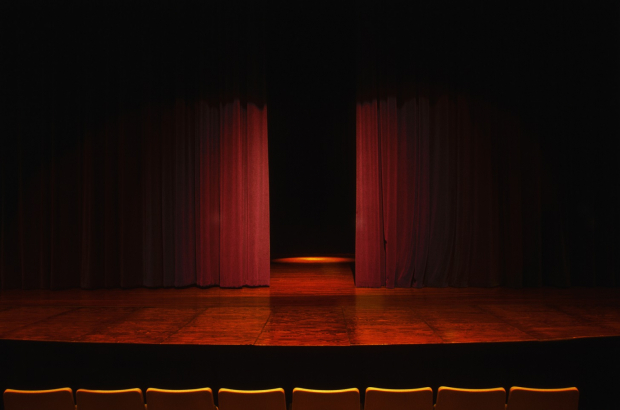- Daily & Weekly newsletters
- Buy & download The Bulletin
- Comment on our articles
The Bridge: Could Brussels finally get a professional English-language theatre?
One has never had to look far for English-language theatre in Brussels – there are several amateur groups performing everything from Shakespeare to light opera. But a professional English-language theatre has never been able to get off the ground.
There is one clear reason for this: Money. Cultural institutions in Belgium are highly subsidised, and the language communities do not hand out funding to institutions with a working language other than French and Dutch.
“There are ways to do it,” says Edward McMillan. “There are other institutional levels that are also grant-making. You can build long-term partnerships with other kinds of institutions, like the corporate and lobbying worlds. And longer runs. A lot of the runs here in Brussels are very short. There’s no way you can make a profit by running a show for a week, you have to go longer.”
If you think those are a lot of ideas, wait until you hear what else McMillan has in store for expats at The Bridge, a new English-language theatre planned for Brussels.
Victim of Brexit
Like so many expats, McMillan moved to the capital a few years ago to work for the European Commission. And like so many British citizens, he saw the dream die with Brexit.
An English-language theatre, he says, “is a way to bridge this widening gap between the EU and the UK. Brexit was the initial catalyst that got me thinking about this project. I said, OK, Brexit has happened, and I want to do something that can mend these wounds. What can I do.”
McMillan was a theatre professional – singing, dancing, acting – in London previous to his move. So he decided what he could do was launch a professional theatre in the capital of Europe.
“I first learned about the concept of English-language theatres in Frankfurt,” he says. “I lived there for six months between 2005 and 2006. They have an amazing theatre there, very well run and very successful.”

‘Crazy that professional English theatre doesn’t exist here’: Edward McMillan
While Frankfurt is perhaps the best example, there are other professional English theatre companies based on the continent, including in Berlin, Vienna and The Hague. “My thought was, Brussels is a much more international city than those. English is so widely spoken here, not just by the expats but the Belgians themselves. It seems crazy that this doesn’t exist here.”
But he wants The Bridge to be more than a theatre; he wants it to be a community hub for English speakers in the capital. “Theatres are public buildings in a way,” he says, “and I have been inspired by open buildings such as the National Theatre in London, where I used to go just to work or have a coffee with friends. They have workshops going on in the foyer and musicians playing, just for free for anyone to come and enjoy. I want to do something similar here. Maybe a café, some kind of public bookshelf, art on the walls by local artists – give the community a chance to interact with the theatre.”
He also envisions workshops and classes for all ages. And while The Bridge does not have a permanent space yet, workshops begin this summer. They will be targeted at children and teenagers.
“They will probably take place in Saint-Gilles – five days of singing, dancing and acting, as well as puppetry workshops by Avenue Q actors and stage combat workshops by people who train actors in film. So it’s going to be really exciting.”
Business model
It’s just the start: Regular community activities will take place starting in September. McMillan doesn’t expect to be able to stage actual theatre productions until next year, or maybe 2023. First, he must find a space, work up some interest and put the business plan into action.
“The communes have been very positive, especially Ixelles and Saint-Gilles, and also Brussels-City. They understand that there is something missing, that there is a gap in the market. There’s a massive expat community, more than 200,000 people live and work here because of the EU and Nato. And then there’s all the other people who speak English here. So you do have a target market for this; it’s just about tapping into it.”
McMillan hopes for support from municipal and regional authorities, but he also realises that The Bridge must generate its own income. While it will be non-profit, it cannot rely on subsidies if it hopes to be successful.

The public spaces in the National Theatre are an inspiration for the duo behind The Bridge
Besides a café and tickets sales, he envisions team-building and other staff engagement opportunities for businesses, as well as sponsorships. “The Bridge will necessarily attract expats in positions of influence, and that could be valuable in partnering with various organisations,” he says.
Ultimately The Bridge – as the name implies – is meant to reach across divides, bringing together English speakers of different socio-economic backgrounds and fighting the polarisation brought on by Brexit and other populist movements.
“I wanted to do something proactive that addressed the political climate that I was seeing in Europe,” says McMillan. “You can use theatre to address some of these social divisions and this fracturing of society. It’s a place for a dialogue of ideas, of communication between people, and it also gathers people together to experience something unique.”
Registration is open now for summer workshops with The Bridge
Photo top ©Chase Swift/Getty Images


















